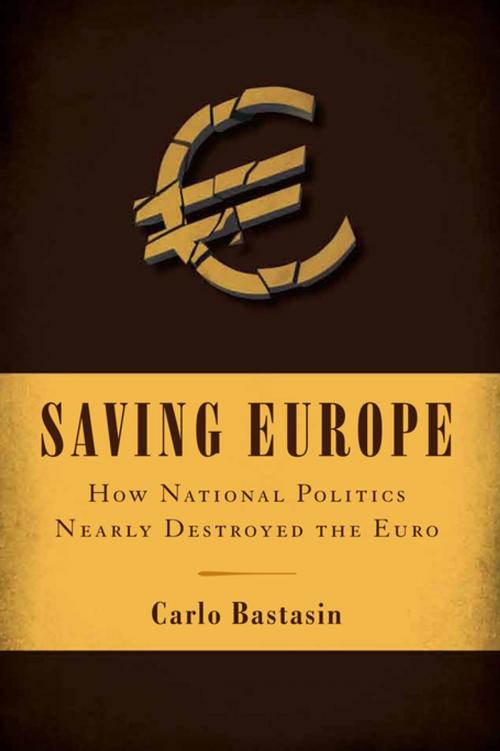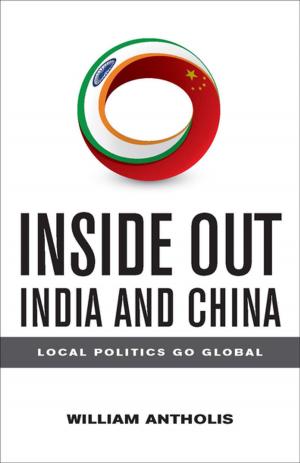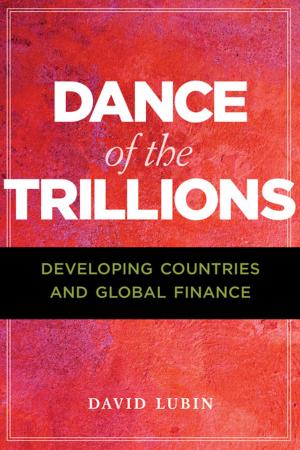Saving Europe
How National Politics Nearly Destroyed the Euro
Business & Finance, Economics, International Economics, International, Nonfiction, Social & Cultural Studies, Political Science, International Relations| Author: | Carlo Bastasin | ISBN: | 9780815721970 |
| Publisher: | Brookings Institution Press | Publication: | March 8, 2012 |
| Imprint: | Brookings Institution Press | Language: | English |
| Author: | Carlo Bastasin |
| ISBN: | 9780815721970 |
| Publisher: | Brookings Institution Press |
| Publication: | March 8, 2012 |
| Imprint: | Brookings Institution Press |
| Language: | English |
Three times in the few years since the global financial crisis erupted, the euro has come close to extinction, endangering both the world economy and history's most ambitious project in shared sovereignty. Yet each time, the case for a common currency proved to be more compelling than its weaknesses, and the euro survived. Saving Europe reveals how the nexus of international economics and national politics pushed monetary union to the brink of a breakup, how that disastrous development was avoided, and why the long-term viability of a common currency challenges politics as we know it.
Carlo Bastasin reveals and analyzes what has been happening behind the scenes in European negotiations since the financial crisis began with the collapse of major financial institutions in 2008. He argues that the crisis in the euro zone actually has a political origin, having emerged from the self-interested abuses of national politics. Moreover, the crisis is reinforced even now by the obstinate defense of national prerogatives in politics and finance as well as by the lack of commitment for shared or supranational sovereignty. While the prevalent view is that monetary union was a flawed project from the start and is in need of amending, Bastasin shows that the failures have to do almost entirely with national opportunism-not only in Greece but in most countries, including Germany-and concludes that the crisis will lead to Europe's political union.
Bastasin's work is an engrossing historical chronicle, interweaving moments of high drama with individual personalities on the world stage. German ChancellorAngela Merkel, French President Nicolas Sarkozy, and national and European central bankers, among others, play key roles. Saving Europe is also a rigorous attempt to make larger sense of what has happened in the euro zone and what might happen next. Given the central importance of Europe within the fragile world economy as well as growing speculation that the euro might disappear, this is essential reading for anyone trying to grasp international economics and politics. Just as important, it is a compelling tale of people, personalities, power, and money. There is no other book like it.
Three times in the few years since the global financial crisis erupted, the euro has come close to extinction, endangering both the world economy and history's most ambitious project in shared sovereignty. Yet each time, the case for a common currency proved to be more compelling than its weaknesses, and the euro survived. Saving Europe reveals how the nexus of international economics and national politics pushed monetary union to the brink of a breakup, how that disastrous development was avoided, and why the long-term viability of a common currency challenges politics as we know it.
Carlo Bastasin reveals and analyzes what has been happening behind the scenes in European negotiations since the financial crisis began with the collapse of major financial institutions in 2008. He argues that the crisis in the euro zone actually has a political origin, having emerged from the self-interested abuses of national politics. Moreover, the crisis is reinforced even now by the obstinate defense of national prerogatives in politics and finance as well as by the lack of commitment for shared or supranational sovereignty. While the prevalent view is that monetary union was a flawed project from the start and is in need of amending, Bastasin shows that the failures have to do almost entirely with national opportunism-not only in Greece but in most countries, including Germany-and concludes that the crisis will lead to Europe's political union.
Bastasin's work is an engrossing historical chronicle, interweaving moments of high drama with individual personalities on the world stage. German ChancellorAngela Merkel, French President Nicolas Sarkozy, and national and European central bankers, among others, play key roles. Saving Europe is also a rigorous attempt to make larger sense of what has happened in the euro zone and what might happen next. Given the central importance of Europe within the fragile world economy as well as growing speculation that the euro might disappear, this is essential reading for anyone trying to grasp international economics and politics. Just as important, it is a compelling tale of people, personalities, power, and money. There is no other book like it.















